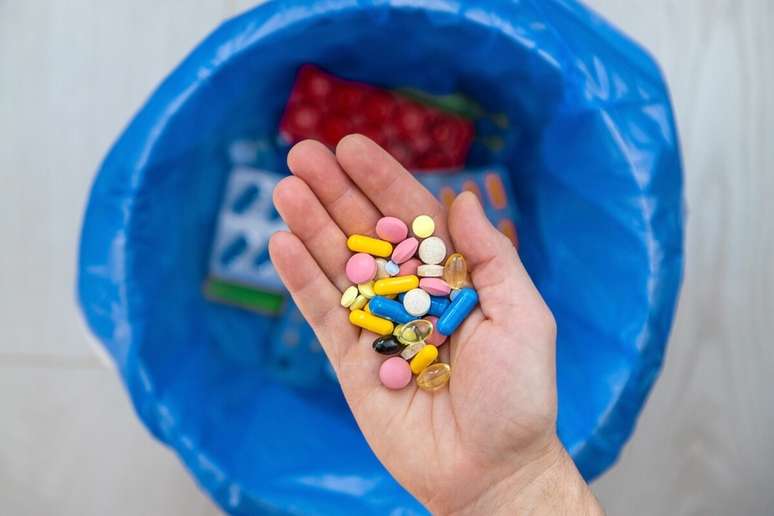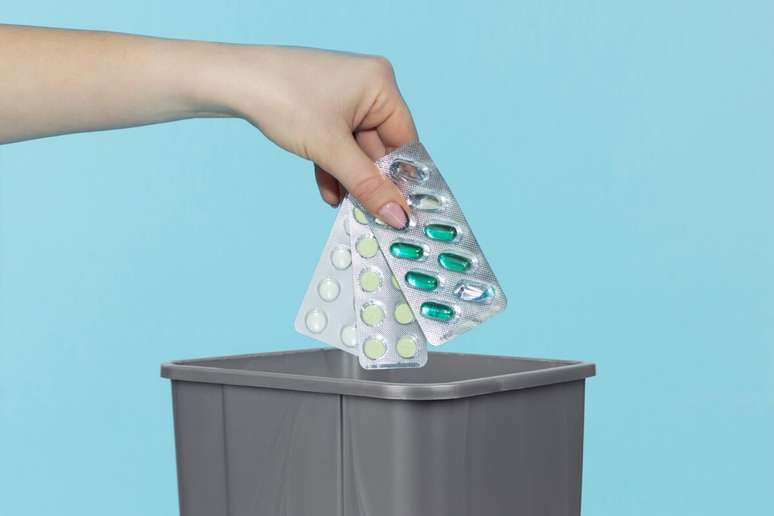Playing drugs in ordinary waste causes health risks and compromises the environment
According to recent data from the Federal Council of Medicine, Brazil is among the countries with the highest drug consumption in the world. Among the most used are contraceptives, painkillers, nasal decongestants and anti-inflammatory drugs. However, after use, packaging and disused remedies must be properly discarded to prevent harm to the environment and public health.
“The inappropriate disposal of medicinal It can affect soil, surface water or groundwater. Therefore, they should not be discarded in ordinary waste, as was done by the majority of the population. The products have numerous chemicals that can be harmful to the environment and people,” explains pharmacist and Master of Health Sciences Dr. Carolina Canelles, coordinator of the pharmacy course at Anhanguera College.
Incorrect disposal losses to the environment are large. “To give you an idea, each kilo of discarded drugs can contaminate up to 450,000 liters of water. Therefore, it is essential [o descarte] Be done in authorized places, such as health posts, some pharmacies and pharmacies, “says the professional.
Reverse logistics available for medicines
The correct discarding of products is foreseen in the national policy for solid waste, through law no. 12,305 of 2010. The regulation for domestic drugs, delayed or disused, was carried out in June 2021, through decree no. The legislation states that all companies involved in drug trade, from production to distributionare required to implement and operationalize reverse logistics systems.
Dr. Carolina Canelles also explains that, in general, the companies responsible for collecting these drugs perform neutralization of the substances, when necessary, and subsequent incineration.
Pharmacy disposal materials
Cuts or sharp materials, such as needles, should not be brought to pharmacies. They can be discarded in basic sanitary units, which have appropriate places for disposal. In addition to medicines, the packaging in which they are stored should also be delivered to pharmacies, such as pills and tablets, syrup bottles and even cups and syringes. Only the cardboard box and package insert can be thrown into the recyclable waste.
How to properly discard medicines
Below, pharmacist Dr. Carolina Canelles lists a few guide Information on disposing of medicines. Check!
1. Search for the pharmacy or drugstore closest to your home
Ask if they receive disused remedies, whether tablets, capsules or syrups. If you do not receive, ask where to discard these materials without risk of contamination.

2. Avoid discarding expired or unused medicines in ordinary waste
This can pose risks of environmental contamination and even be dangerous to people or animals who may contact them.
3. Use a hard container to dispose of needles and diabetic needles
To discard the needles and shoots used in the treatment of diabetes Or other illnesses, it is important to use a rigid container that can be sealed, such as a pet bottle. There are hospitals and health posts that receive this material for proper disposal.
4. Use recycling for bulls and boxes
Empty flyers and boxes can be collected directly for recycling with conventional waste.
5. Avoid discarding medications in the sink or toilet
This can cause drugs to contaminate drinking water and the environment.
Be aware of the validity and storage conditions
Dr. Carolina Canelles points out that after high school graduation, no remedy It should be consumed and the patient should discard. “The expiry date of a medicine is set by numerous tests that evaluate the stability of the substances present in the formulation. That is, after this date, there is no guarantee of the safety and effectiveness of the drug. Therefore, they can lose their long-term effect, or, in some rarer cases, can cause toxic effects on the body, “he warns.
By Nicholas Montini Pereira
Source: Terra
Ben Stock is a lifestyle journalist and author at Gossipify. He writes about topics such as health, wellness, travel, food and home decor. He provides practical advice and inspiration to improve well-being, keeps readers up to date with latest lifestyle news and trends, known for his engaging writing style, in-depth analysis and unique perspectives.









